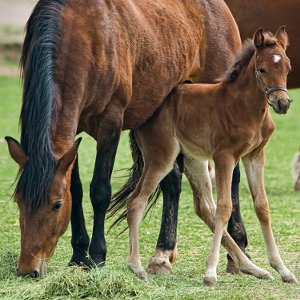Write a short headline
Equine Clinic
Kilcoyne & Barnes Veterinary Services provide horse owners with a wide range of Equine veterinary care to the highest professional standard. Our vets are here to ensure your horses have the best quality of life possible, by offering expert health management and preventative healthcare. You can count on us for all your equine needs.

Services
- Routine Health Care
- Horse Passport
- Pre-purchase examinations
- Advice on worming
- Vaccinations
- In-house worm egg counts
- Routine Dentistry
- Equine Nutrition
- Microchipping
- Equine Fertility Management
- 24 hour emergency service